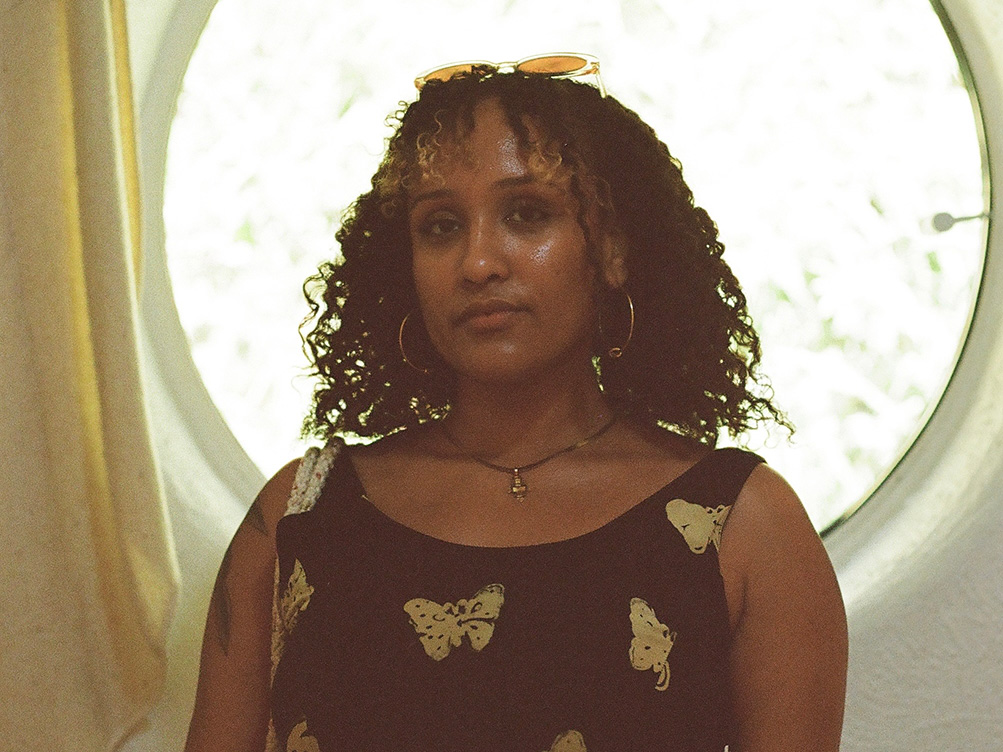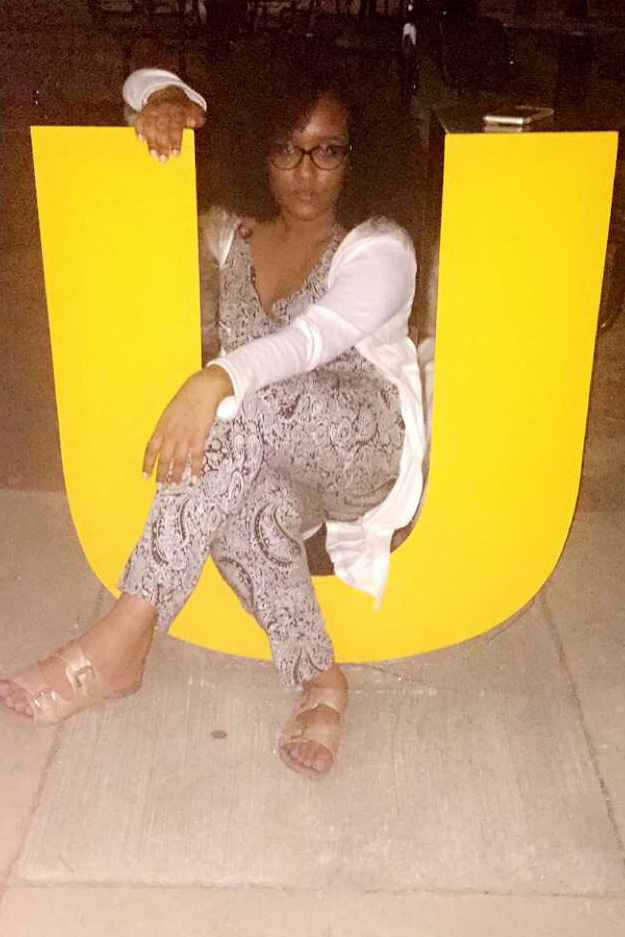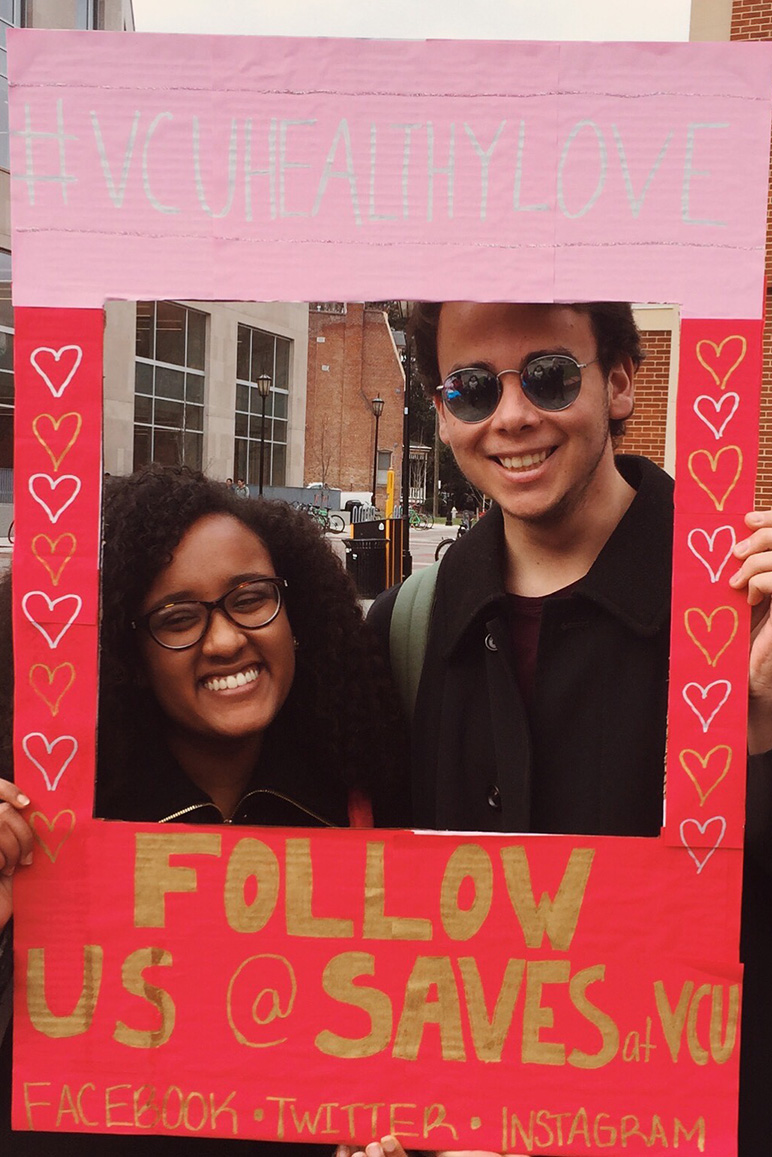Nardos Iyob (B.A. ’20) raises awareness for a major adolescent development study
Nov. 10, 2025

Nardos Iyob (B.A. ’20) arrived on campus excited to dive into the Department of Political Science’s concentration in civil rights. The overlapping nature of the concentration provided Iyob opportunities to pursue additional interests in other departments, resulting in her double majoring in African American Studies.
Iyob’s professional career is steeped in service and meeting people where they are. As an intern, Iyob’s responsibilities ranged from assisting formerly incarcerated people reapply for their voting rights to manning election day hotlines focused on ballot box integrity. She now serves as a project manager for the Adolescent Brain and Cognitive Development (ABCD) Study based at the study’s site at the University of California, San Diego. Iyob is responsible for creating communications and marketing materials to raise awareness of the study’s work in youth mental health over the last 10 years.
What drew you to VCU? What were the challenges, if any, of being a double major in African American studies and political science?
My parents immigrated from Ethiopia in 1993, and they landed in the DC area. We moved around there but Virginia is where I’ve lived the longest. When it came time to go to college, I was actually conflicted. I was going to go to the New School in New York City and then I got my VCU letter that July and I was like, ‘Hold up. We're going to do that.’ I didn't realize that Richmond was going to be that cool, while still having my connections from northern Virginia.
I always knew that I wanted to do political science because I had taken AP history classes that I really enjoyed and my credits transferred, which meant that I got to go into some of my major courses in my first year.
I took a Politics of the Civil Rights Movement class that was taught by Ravi Perry, Ph.D. The contents of the class, plus Richmond's history, plus, the current context then and even now, made history feel real. At that time the slogan was, “Make it Real,” and I was just like, ‘holy moly. This is real.’ It felt very poignant and it felt very timely. I feel like it was those kinds of classes that gave me a really interesting look into history and gave me a really cool perspective of how to look at things.
Double majoring allowed me to take more classes that I really enjoyed. I was eyes wide open, super excited about all of my classes, and it really taught me how to be myself and also really think of myself as an adult in so many different varieties and so many different dimensions. I credit my education for so much of my success because it taught me so much.
 What excited you about pairing African American studies with political science?
What excited you about pairing African American studies with political science?
My political science concentration was civil and human rights, and being able to take cross-listed topics courses opened my eyes to all of these different types of classes that were being taught in different majors that I hadn't really gotten to experience.
I think all of the professors at VCU are amazing. I feel like their perspective is so wide and robust. I started to think of my professors as celebrities in a way and really took in everything that they were saying to heart. I would follow up and go to office hours and just ask them how certain ideas would look in real life applications.
I actually had a really cool instance in my junior year when I was taking Politics of the Resistance with a professor who was also a lawyer at the ACLU because that was also the semester that I had an internship at the ACLU. Seeing the curriculum in a real life application in a way that wasn’t so abstract made me feel empowered to pursue that.
You were quite busy while pursuing your degree, interning in politics, advocacy, and new media. How did those roles expand upon or enhance what you were learning in the lecture hall?
Most of those roles came through someone that I met through VCU or one of my professors.
Number one, I was like, ‘okay, there are people working in this,’ because I think when it comes to the humanities, the first question is ‘how does someone utilize their African American studies degree or gender, sexuality and women’s studies degree, etc.?’ However, I think that question is actually not so hard to answer because I feel like those majors are the ones that prepared me for the world that we have to live in.
It taught me about interacting with people, seeing the multidimensional aspects in which people come from – especially in Richmond. The city is so interesting and robust culturally and also historically. I feel like there are a lot of unique opportunities that are specific to VCU, but also, I think the population of people that live in Richmond are super DIY and very self-sufficient.
I felt very comfortable in being creative and getting to experiment and do things that may not have necessarily outwardly looked like something a poli sci student would do or an AFAM student would do. During my time interning at the ACLU, we had a ballot hotline for the polls on election day. We had to man the hotline and people would call the ACLU during or after their voting experiences to tell us if there was something wrong or to report something. That was a real application of what could happen at the voting box.
When I was working at the Democratic Party, I got to make my own fundraiser and voter registration event because it was also the summer that Terry McAuliffe had signed his governor's bill to restore voting rights for people who were formerly incarcerated or had committed a felony. There was a surge to help people get registered.
I would learn something in class or I would read a book and then a couple of weeks later or by the semester’s end, I'd actually have to think back on what we talked about and put it into practice. I feel like my degree especially prepared me to navigate the world in a more inquisitive way. In this time where we have algorithms that cater to what we like or what we think we like, it's so hard to move away or delve into new things or open up your perspective that it really takes immersing yourself in certain experiences to understand whether you like it or not.
Tell us about your project manager roles with the Adolescent Brain and Cognitive Development (ABCD) Study.
The ABCD Study is the largest long-term brain development study of adolescents in American history. We originally recruited 12,000 participants, across the country at 21 different sites, ages 9-10 to study their brain development for 10 years; we're actually nearing that end of the 10-year mark. We track physical health, mental health, and substance use. We use novel technologies, we do brain scans every other year, and that's amongst many other things.
I am a project manager and we have around 500 people in our consortium which includes postdoc researchers, research assistants, all different types of people who use our data to look at different questions regarding youth development.
My role changed with this new administration because we are funded by several 16 federal agencies. I am now a part of our community engagement and dissemination work group that manages a lot of our communication materials as well as public facing materials. I work on our website, social media, and print materials that we share with the public and our participants. I also work on a crisis management team that plans for and manages crises that could emerge during youth development as well as the ongoing studies.
We hope to get funded for another 10 years because this is something that is in line with the current administration's priorities of monitoring young adult health and seeing how certain things develop and certain things emerge. It would be really cool to see that; there's definitely buy-in for extending us. My work also really revolves around making sure that some of our communication strategies and projects last into our next iteration if that is the case.
 Reflecting on your time at VCU, how do you feel your time on campus helped prepare you to accomplish the work that you've done so far in your career?
Reflecting on your time at VCU, how do you feel your time on campus helped prepare you to accomplish the work that you've done so far in your career?
VCU taught me to be able to look at people as they come and be accepting of meeting people where they are. One of my main takeaways from my time at VCU was I came in feeling like I knew what I wanted, but I also learned so much more. I think if I had gone to a different school, I would be less well-rounded.
I think one of the most powerful moments or powerful things that I did at VCU was participating in Open Minds with Liz Canfield, Ph.D. I love her. We would go to the Richmond City jail every Friday, and we would do a poetry class. It was for just one semester, but it was the most gratifying experience. I learned the power of turning or making a space yours and making it a safe place for people to foster their creativity, skills, and tools. If you can do that in jail, you can literally do that anywhere. I'm just so happy to have been a part of that experience.
What is your why?
I want to make the world a better place and use all my tools that I got along the way. A lot of them came from VCU and the people that I met. I seek to be in areas and environments that really help facilitate that.